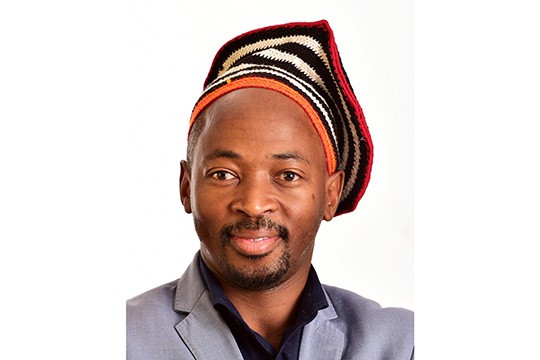Although enshrined in the Constitution, Freedom of speech, Freedom of expression, and press freedom in South Africa must be constantly reaffirmed and strengthened by the people of the republic, the institutions of government, civil society, the judiciary, business, media practitioners, labour movements, and ordinary citizens.
Section 16 (1) of South Africa's Constitution should become a standard clause for every constitution in the World. This apex law in our country states that everyone has the right to Freedom of expression, which includes Freedom of the press and other media; Freedom to receive or impart information or ideas; Freedom of artistic creativity; and academic Freedom and Freedom of scientific research.
Section 16 is emphatic about the limitation to Freedom of expression: "The right in subsection (1) does not extend to propaganda for war; incitement of imminent violence; or advocacy of hatred that is based on race, ethnicity, gender or religion, and that constitutes incitement to cause harm…
All who reside in the republic widely enjoy Freedom of expression and of the press, whether through robust debates in our parliament, legislatures, and councils or during engagements at the Thusong Service Centre in Nyanga East. The fact that all of us are free to engage and debate on critical issues such as just energy transitions, transparency in governance, and land redistribution is a clear testimony of a democratic society in conversation.
South Africa's commitment to Freedom of expression and the media stands as a beacon and our country attracts and hosts international media houses from all parts of the globe, who in turn enrich the culture of Free Media.
Social media and citizen journalism have also enhanced the culture and deepened democracy with a plurality of voices. The democratic era has shown the free press's vital role in promoting good governance. As an open and transparent society, South Africa strives to increase media access and provide credible information that helps people make decisions and improve their lives.
As a member of the globe, we face the reality that powerful media voices and social media platforms shape daily conversations globally. These are owned mainly by pressure groups who continue to have their vision and version of Africa, not the Africa we want and need.
As Journalists around the World, we need to use our voices and participate in the global governance systems toward new reforms. We ought to emphasise the need for strengthened and equitable rules-based multilateral systems to give genuine meaning to the Freedom of expression and the plurality of diverse media voices. We should also continue to collaborate with global media practitioners on the role of the media in strengthening and reforming the global multilateral system.
As media practitioners, we have the power to contribute to a better world when we genuinely aim to reduce conflicts by expressing ideas that improve debates, encourage dialogues that put people first and ensure tolerance of different views. The dangerous challenges journalists face in some countries constitute a significant concern that needs attention from world leaders.
We should all condemn the killing of the journalist Jeff German in Las Vegas (Nevada, USA) on 3 September. The shooting and brutal killing of Abu Akleh from Al Jazeera, and the killing of Kenya Broadcasting Corporation video editor Betty Barasa. These are some recently reported names by the UNESCO observatory of killed journalists.
There will never be true freedom of speech until we can bring life to Article 19 of the United Nations Universal Declaration of Human Rights for Freedom of Expression. Every country needs to work harder to put protections in place and to ensure that they are upheld.
There is no point in calling your country a democracy when there is an evident lack of balanced, reliable, and trustworthy information that enhances social cohesion, safety, and security.
An independent media sector can indeed assist in building good governance. However, the media can elevate its position to play a critical role in advocating for human development and a just world where leaders respect and put people first.
We ought to question whether our media freedoms are used effectively enough to hold world leaders accountable to citizens. Is the power we have enough to push world leaders to reduce conflict and hunger?
Can we influence the course of world events and create a new world order where all countries are equal before international laws?
How do we encourage the openness of the mind and tolerate others who see the future of the World differently from us?
These and many other similar questions will define the role of the media and Freedom of speech and expression in years to come. Now more than ever, our voices and thoughts must be used to set the agenda and ensure a better tomorrow for all.
About the author: The former Spokesperson to the Department of Communications and former adviser to the Deputy Minister of Communications in South Africa. The activist who survived Apartheid is a senior public servant with advanced expertise in International Media Relations and Public Management.
read more in our Telegram-channel https://t.me/The_International_Affairs

 17:07 06.05.2023 •
17:07 06.05.2023 •























